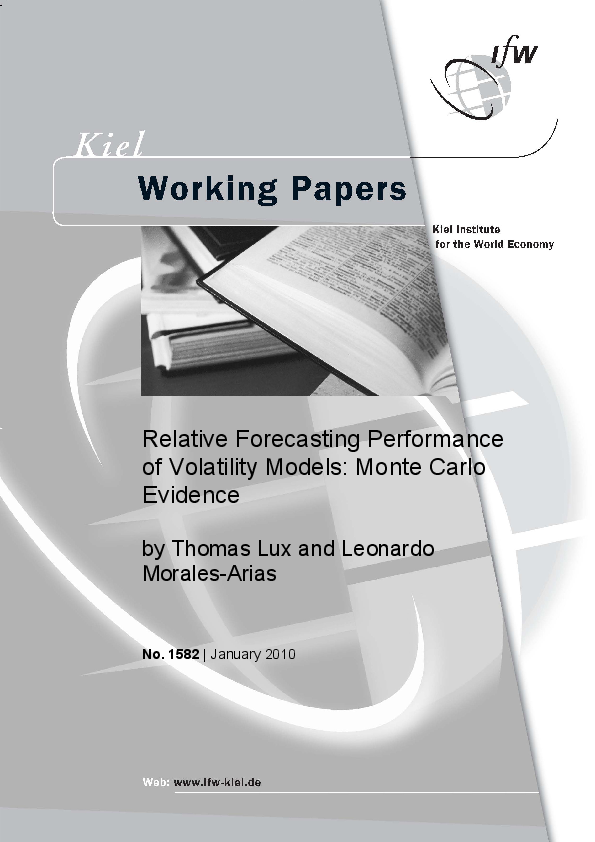Working Paper
Relative Forecasting Performance of Volatility Models: Monte Carlo Evidence
Authors
Publication Date
JEL Classification
Key Words
A Monte Carlo (MC) experiment is conducted to study the forecasting performance of a variety of volatility models under alternative data generating processes (DGPs). The models included in the MC study are the (Fractionally Integrated) Generalized Autoregressive Conditional Heteroskedasticity models ((FI)GARCH), the Stochastic Volatility model (SV) and the Markov-switching Multifractal model (MSM). The MC study enables to compare the relative forecasting performance of models, which account for different characterizations of the latent volatility process: specifications which incorporate short/long memory, autoregressive components, stochastic shocks, Markov-switching and multifractality. Forecasts are evaluated by means of Mean Squared Errors (MSE), Mean Absolute Errors (MAE) and Value-at-Risk (VaR) diagnostics. Furthermore, complementarities between models are explored via forecast combinations. The results show that (i) the MSM model best forecasts volatility under any other alternative characterization of the latent volatility process and (ii) forecast combinations provide a systematic improvement upon forecasts of single models.






